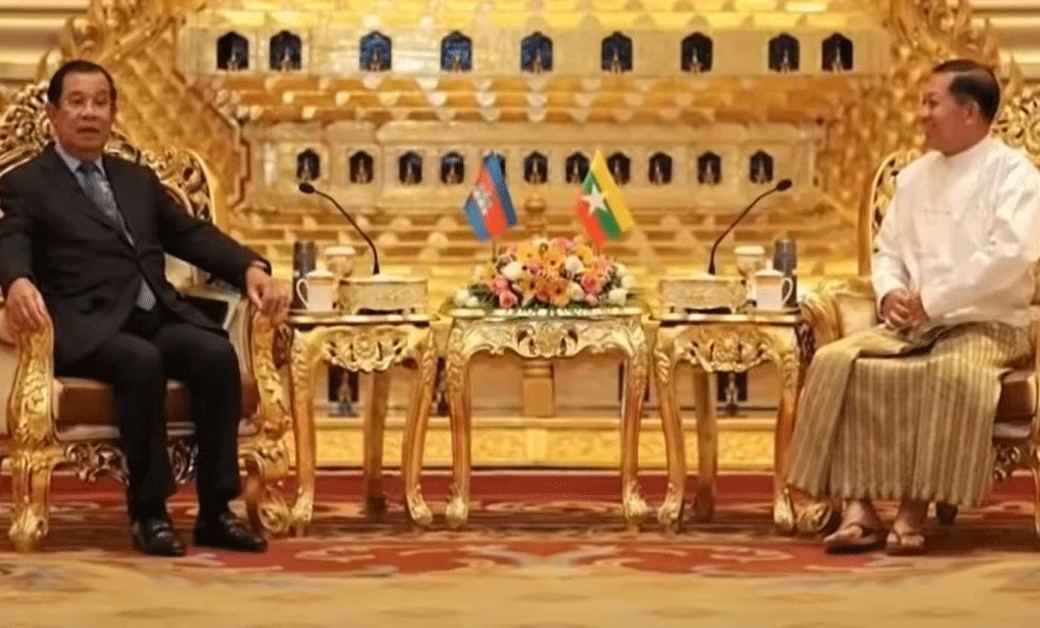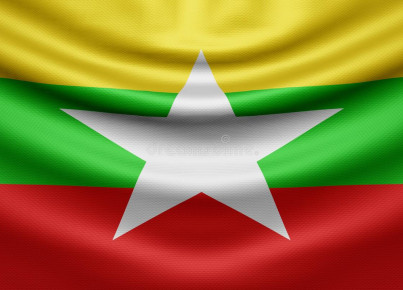Myanmar promises to still be at the center of Southeast Asian dynamics during 2022. With internal rifts deepening and in the absence of a recognised national government, Cambodian Prime Minister Hun Sen's recent visit has set the dust on fire
By Tommaso Grisi
Myanmar continues to be at the center of attention. Following the coup that overthrew the government of Aung San Suu Kyi, the relationship with the military junta has created many problems for diplomats in South-East Asia and the rest of the world. While the stance taken by Western countries was predictable, with the United States and the European Union adopting economic sanctions against the country from the outset, it is on ASEAN that the biggest questions are now being asked. The South-East Asian organization seems to be the only actor capable of exerting serious pressure on the country, given the ineffectiveness of the economic measures adopted and the impossibility of intervention by the United Nations, where China and Russia have vetoed the Security Council. The US Secretary of State, Antony Blinken, is also aware of this, and last December he led a diplomatic mission to South-East Asia, expressing strong concerns to the leaders of partner countries about what is happening in Myanmar.
For their part, the ASEAN member states have already declared that they do not want to follow the path of economic sanctions and prefer a softer but constructive approach. It was with this in mind that a five-point plan was initially drawn up, aimed at providing humanitarian aid to the population and establishing a political dialogue between the parties.
However, the divisions among the member states and the lack of cooperation of the parties involved have led to a deadlock, with the region's chancelleries undecided on what to do. Despite the common will to bring the country to a more stable condition as soon as possible, in fact, several knots remain to be unraveled within the organization, starting from the recognition or not of the governing role assumed by the military junta, currently excluded from ASEAN meetings, and the need to review the traditional principle of non-interference that has so far guided the actions of Member States.
In this respect, the visit of Cambodian Prime Minister Hun Sen was significant and met with strong criticism. Opponents of the junta accuse him of trying to legitimize the established regime, especially in light of the fact that Hun Sen himself took power in Cambodia in a military coup in 1997. The issue is all the more important considering the fact that the Prime Minister has been visiting the junta in two capacities: as President of ASEAN and as the first head of government to visit the country since the military seized power. This is certainly nothing new for the Cambodian Prime Minister, as he had already been criticized in the past for taking an overly open stance towards the Burmese junta, especially after proposing to extend an invitation to attend ASEAN meetings to those responsible for the coup. Despite this, the Cambodian Prime Minister seems intent on continuing along this path, having appointed his Foreign Minister, Prak Sokhonn, as the new special envoy representing ASEAN to Myanmar.
Exclusion from ASEAN meetings could indeed be a point of leverage. The access to the meetings of the governments of South-East Asia would constitute a de facto recognition for the military junta, fundamental to be able to interface as equals with the other countries of the region. It is precisely on this point that the credibility of ASEAN seems to be at stake. If the organization were to give in to the junta's pressure, in fact, it would be impossible not to suffer a severe blow to its international image, given that in recent months there has been no lack of tension between the Member States with reference to the Burmese issue.
The governments of Malaysia and Indonesia, which have openly criticized Hun Sen's visit to the country, as well as Singapore, are in strong opposition to Cambodia's positions, while representatives of Laos, Thailand and Vietnam have lined up in support of him. In short, the cracks within the organization seem to be deepening.






